HAMLET by William Shakespeare
Sue Rider’s Program Notes
Every decade we are ready for another Hamlet. The 1990s is the era of `Generation X, a generation of young people who are refusing to be labelled by their elders. They have mixed feelings of confusion, anger, disappointment, idealism, betrayal. They are not a cohesive group.
They have a range of interests, a range of dislikes, a range of humour. Perhaps one of the few things that binds them is a sense of separateness from the 'baby-boomers' who make up their parents' generation. Much of the confusion, anger and even indifference of these young people stems from their attitude to the baby-boomers who presently rule the country - and the world - and who seem likely to go on ruling for many years. Generation X, the most highly educated group of young people yet produced, are in a situation of virtual impotence.
Hamlet's concerns have remarkable links with those of today's young people. He is confused, angry, disappointed, idealistic. Betrayed by the older generation, he seeks relief through friends, love, forms of escapism and thoughts of suicide. Caught within a world of corruption and lies, he mocks authority, mimics those in power, and gains the release of laughter with all the wit and cutting satire of The D Generation or The Late Show. Finally, he gains a kind of peace through an understanding of the nature of true friendship. Shakespeare's play, driven by fundamental truths that pulse within us all, is an astonishingly articulate expression of a contemporary dilemma.
No Hamlet can happen without a fine actor in the title role. In 1988, that actor was Eugene Gilfedder in Robert Arthur's memorable La Boite production. In 1995, La Boite is proud to have assembled a strong and versatile company in which another skilled young performer, Andrew Buchanan, can explore this great role. At the same time, in a wonderful twist of fate, we are delighted to welcome back Eugene as soundscape artist.
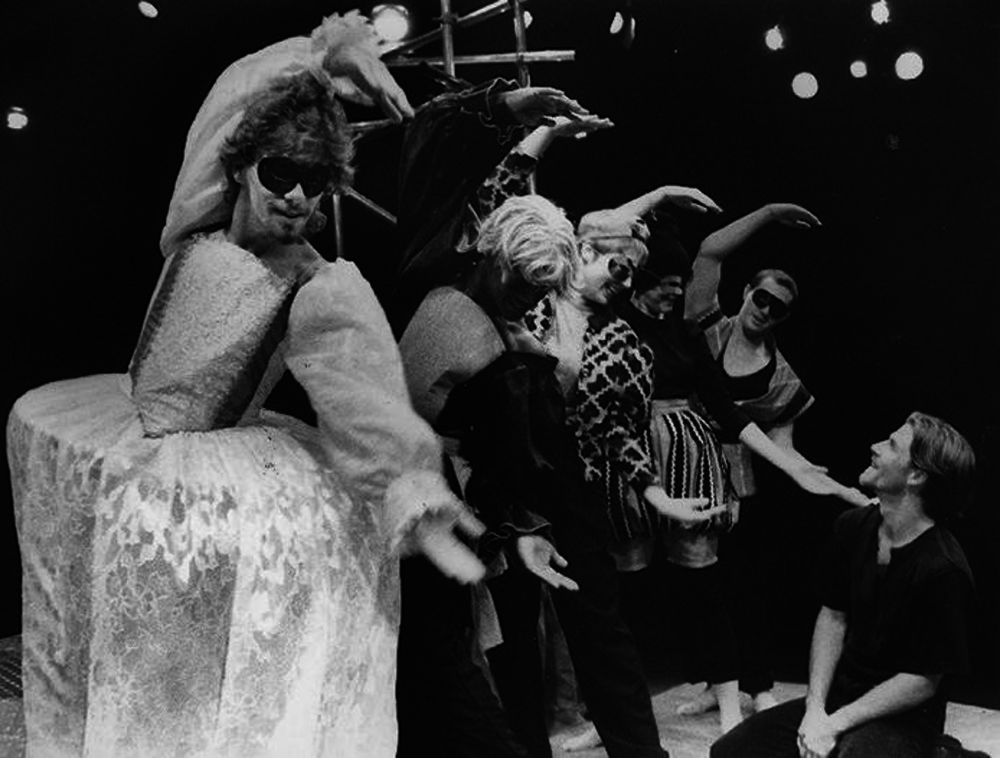
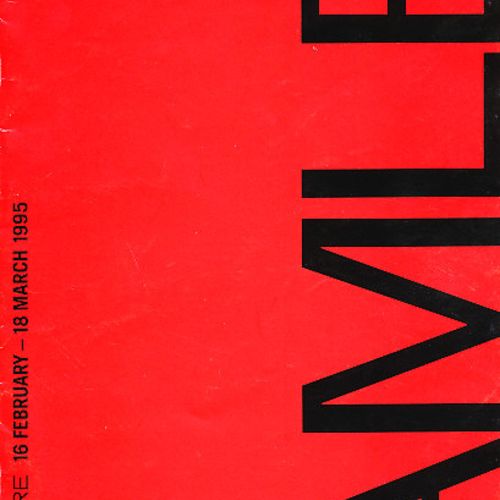
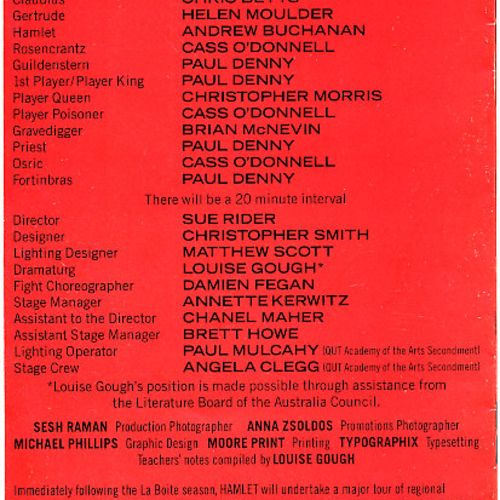
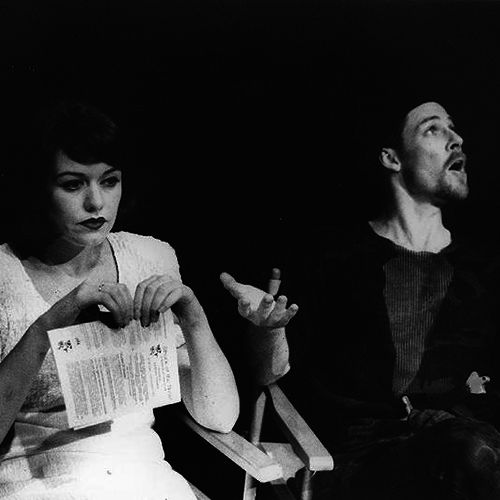
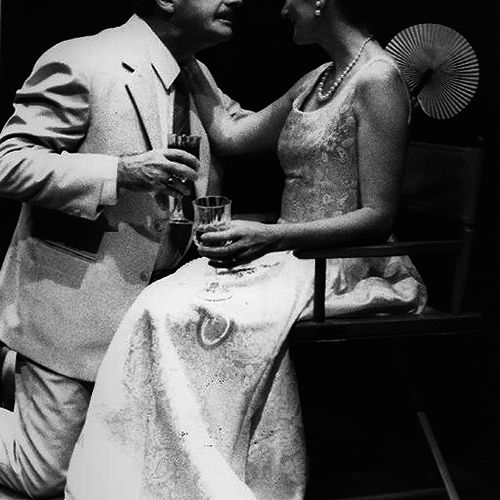
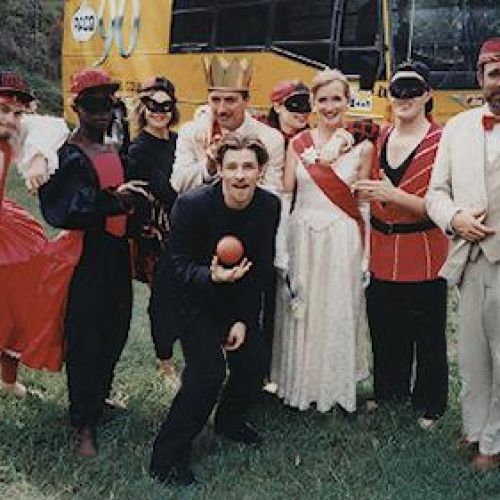
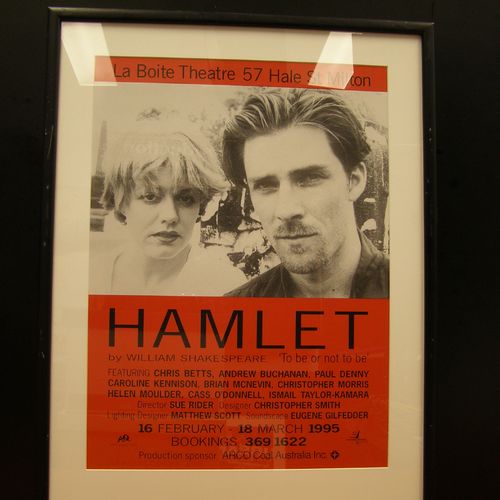
Tell us your story